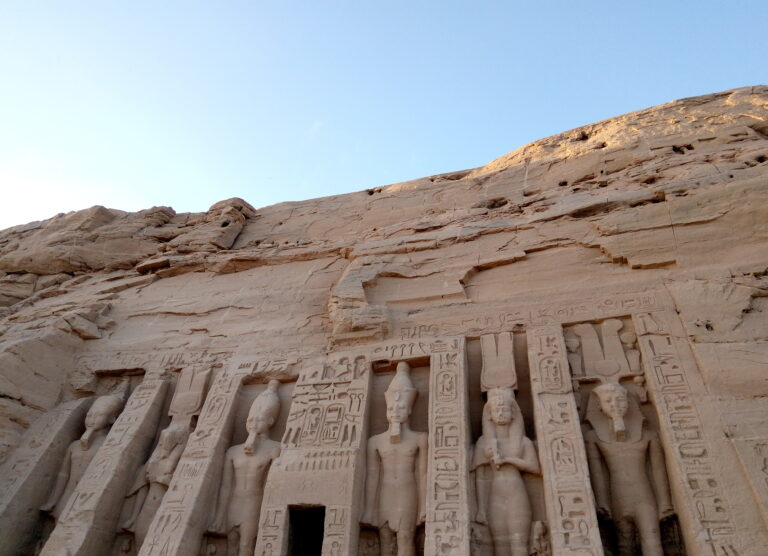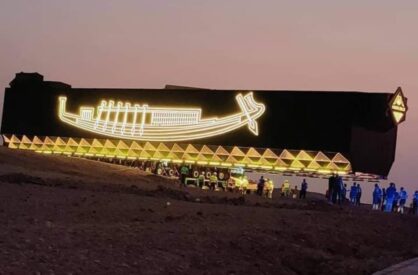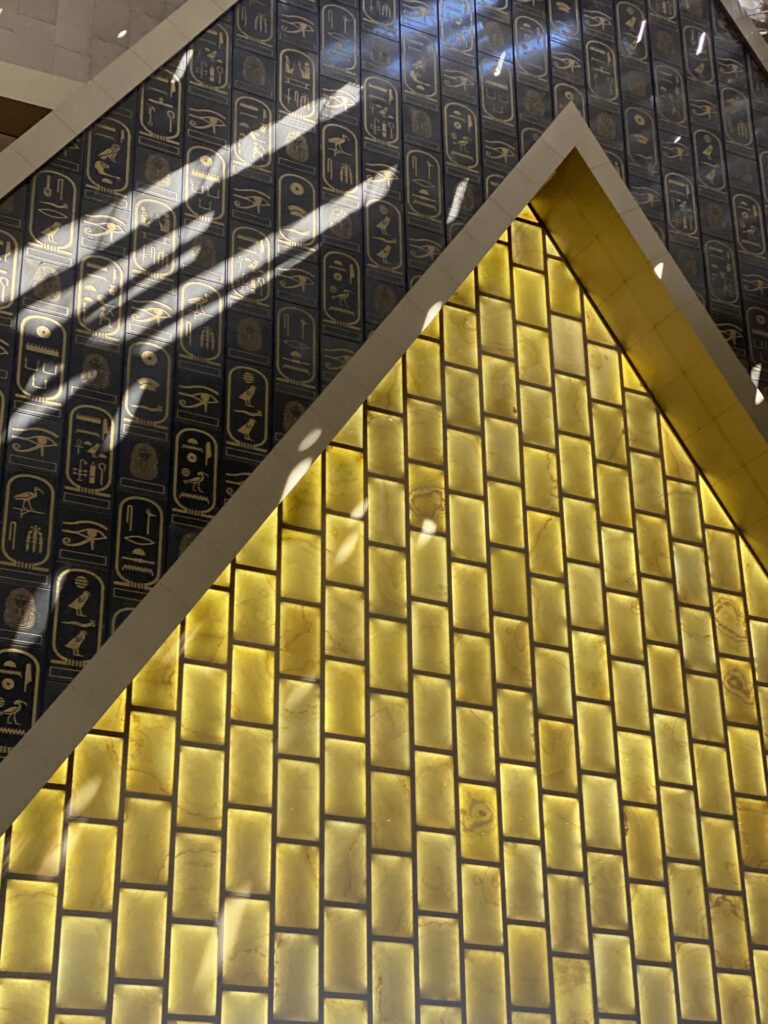Ancient Egyptian history is a long and complex one with more than 3,000 years of details. Throughout these 3,000 years Ancient Egyptians lived under around 30 dynasties, with each dynasty being based on the lineage of the kings/pharaohs. A bit like the modern Royal Families of Europe.
Ancient Egyptian history will take me years to break down fully so a brief outline will suffice for now and give all of those travellers new to Egypt a little tour through Ancient Egypt, Touring the Egyptian museum at the beginning of a tour and perhaps again at the end to fully comprehend what you have seen makes sense and you will be amazed at what you have actually learnt along the way,
The land we know as Egypt began as two kingdoms(Upper & Lower Egypt), with King Menes uniting the two regions at around 3,500 B.C.E. From this point on the pharaohs were referred to as “the rulers of the Two Kingdoms”. This point can be seen in the artwork or steles of the many mortuary tombs and temples dotted around Egypt. The pharaohs were now depicted on the walls with the crowns of Upper and Lower Egypt combined to become one crown, known as the “pschent”.
Two Powerful Ones. The Pschent was made from the Red Deshret Crown of Lower Egypt and the White Hedjet Crown of Upper Egypt. The Pschent was a symbol of the pharaoh’s power over all Egypt.
Upper Egypt and Lower Egypt
The names have grown from the lifeblood of Egypt, because the Nile flows from East Africa’s highlands down to the Mediterranean Sea, Southern Egypt became known as Upper Egypt, and Northern Egypt became known as Lower Egypt.
Ancient Egypt also saw the rise of a complex polytheistic religion, which included many gods, (Akhenaton) even tried to convert the country to monotheism but this was a short lived period With his failure the country reverted back to polytheism during the reign of his son.
Relying heavily on the river Nile,( nothing much has changed ) the ancient Egyptian civilization thrived, expanded and prospered. Trading with foreign countries allowed the ancient Egyptians to reap wealth. With this wealth, the royal tombs of the Pharaohs’ began to become more elaborate example: the building of pyramids beginning from 2630 B.C.E. With the rise of the Greek and Roman civilizations, the ancient Egyptians soon came under the rule of foreign leaders. With the rule of the Romans came the introduction of Christianity, leading to the inevitable decline of the ancient Egyptian religion and society.
For many, the sheer scope of Egypt’s history is difficult to comprehend. Egypt’s history covers more than five thousand years and is very colourful.
Power or control of Egypt has changed many times including the rise of the Greeks and Romans, the establishment of the Jewish, Christian and Islamic religions, the colonial era when first France and then the English ruled the country, and finally, a return to independence, the latest upheaval in Egypt was the last revolution of 2013 when Mr Morsi from the Muslim Brotherhood was ousted by the Egyptian army.
Egypt, the country itself, has played an important role in historical events since apparently, time began and today one can find monuments spread across the width and breadth that provide evidence of Egypt’s role in nearly every one of the world’s historic events, prehistoric( dinosaur- whale bones), ancient, modern, world wars, birth of religions, trade routes,
In Egypt, one can find the earliest detailed records of warfare recorded thousands of years ago, but we can also find the cemeteries and monuments of the world’s last global war, World War II. In Egypt, we find some of the first written words of civilization, but we also find Ancient graffiti from great thinkers and writers from the Greek period
In Egypt, one can find ancient pyramids or temples with enormous columns that support massive stones( still one of the worlds ancient mysteries) , sadly, anywhere one may look in the modern capitals of the world you will find monuments that belong to Egypt but were gifted or stolen along the course of time.
we also find the oldest known paved road, the first wines and beer and even the first peace treaties between organized governments. Look closely at the tombs you visit or the ancient cities you will find evidence of the world’s first scientists, doctors, architects and mathematicians, beauticians, hairdressers, gardeners, potters, artists, jewellers, magicians, sailors,
Egypt is one of the most documented gateways into the past, the one country where you have something to visit that belongs to every era of history.
Many books, blogs, websites are available, start reading up now to make your journey through Egypt one of vast interest






